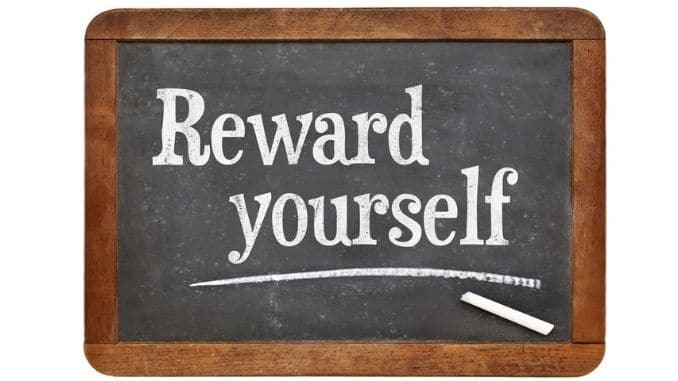
So, you want to quit smoking? You know it’s time. You know it’s the right thing to do for your health and your life. Your loved ones wish you would quit. Your doctor gives you the stink-eye every time you see her. You know you have to quit smoking, but how do you stop for good?
We know how difficult it is to quit smoking. The experts over at Tobacco Facts, a website that offers support and encouragement to those who are serious about ditching cigarettes, say that cigarettes are easy as addictive as heavy street drugs like heroin and cocaine. Further, they report, “Relapse rates for quitters are high: about 60 percent relapse in three months and 75 percent in six months.” The struggle is real. However, you’re not going alone on this.
At Exercises for Injuries, we want to partner with you as you quit smoking for good. We are so glad that you’re finally ready to give up the smokes and begin to heal your body. We’ve put together 14 of our best tips, tricks, and hacks to help you quit smoking. We promise that if you put in the work by implementing these practices, you will be able to stop smoking forever.

1. Set a Date to Quit
The first step in quitting smoking is to literally write your quit date on your calendar and also type it into your phone. This date shouldn’t be too far away. Aim for some time within the next two weeks. Give yourself a date and write it in pen. Then plan accordingly. Don’t buy a carton of cigarettes if you plan to quit on Friday. Just buy a pack at a time until your quit date so that you don’t have back-stock to use up.
2. Tell Everyone About Your Goal
Even if this is the 11th time you’ve decided to quit in as many months, tell everyone about your plan. Tell them the date too. Let everyone know ― even the cashier at the convenience store where you buy your cigarettes.
By telling your loved ones and associates, you’re going public and making it real. You’re also setting up a support system. If you’re desk-mate knows you’re giving up cigarettes this Thursday, he or she will likely encourage you and check in with you regarding your progress. You’ll need support throughout this venture.
3. Use Cognitive Behavioral Therapy to Quit Smoking
According to Psychology Today, “Cognitive behavioral therapy, (CBT) is a form of psychotherapy that treats problems and boosts happiness by modifying dysfunctional emotions, behaviors and thoughts.” The experts added, “Unlike traditional Freudian psychoanalysis, which probes childhood wounds to get at the root causes of conflict, CBT focuses on solutions, encouraging patients to challenge distorted cognitions and change destructive patterns of behavior.”
Go back and re-read that last line of the description again, “encouraging patients to … change destructive patterns of behavior.” Ding ding ding! What is smoking if it isn’t a destructive pattern of behavior? The dysfunctional behavior of smoking cigarettes can be treated with CBT. A CBT practitioner can help the patient replace this destructive behavior pattern with new behaviors, making it much less difficult to give up smoking for good.
Numerous studies have found that CBT is an effective treatment for people with addictions. To find a cognitive behavioral therapist in your area, type “cognitive behavioral therapy” and your ZIP code into your search engine box. Then, call and make an appointment today. This kind of therapist could be your ticket to a new, improved, smoke-free life.
4. Don’t Cut Back on the Number of Cigarettes You Smoke
Wait, what? Wouldn’t it make sense to start cutting back on cigarettes if you want to quit smoking eventually? While the idea may seem like a good one, researchers have found that cutting back doesn’t generally help people quit smoking for good.
The University of Oxford published a randomized, controlled trial that found that an abrupt approach to quitting smoking, also known as quitting cold turkey, leads to lasting results. Conversely, those who attempted to quit by cutting down the number of cigarettes they smoke each day were more likely to pick up the nasty habit once again, a few weeks after cessation.
When you decide you’re ready to stop smoking, just stop. Don’t kid yourself by cutting back only.
5. Make a List of What You Like About Smoking
Seriously. Sit down and write out all the reasons you like to smoke. A realistic and honest look at the drive behind your habit will help you detach yourself from this vice.
6. Why Do You Want to Quit? Make Another List
Sometime before your quit date, or on your quit date, make a list of the reasons you want to quit smoking. Keep that list nearby. Share it with one of your closest friends or family members. This list will help you understand all of the ways quitting smoking will benefit your life and the lives of your loved ones.
7. Consider Hypnotherapy to Help You Give Up Smoking
The physical addiction to cigarettes is strong. However, the deeper, mental addiction is 100 times stronger. According to Grace Space Hypnosis, out of Vero Beach, Florida, “Our subconscious thoughts keep the nicotine addiction in place. The subconscious triggers the urge for a cigarette after dinner or when you get behind the wheel. It’s the subconscious mind that triggers a pang when you’re under stress, or you’ve poured a glass of wine.”
Hypnotherapy deals with mental and psychological subconscious addiction. Many patients have successfully used hypnosis to quit smoking. We recommend it as a highly effective tool.
8. Make a List of Coping Strategies for When Cravings Hit
Be prepared for the difficult times. Make a master list of things you can do to take your mind off the nicotine cravings. This list could include things like:
- Wrestling with your kids
- Buying flowers
- Taking a bike ride
- Going to the gym to workout
- Brewing and drinking a cup of herbal tea
- Writing down things for which you are thankful
- Playing an instrument
- Going inside a smoke-free building to read a book
- Meeting a friend in person to talk
- Chewing gum
When the cravings hit ― and they will ― pick an activity on the list and do that instead. Then, rate your level of stress. If you’re still feeling anxious, pick another option on your list. These coping skills are just another set of tools in your arsenal against addiction.
9. Write Down Hard Things You’ve Done in the Past
Anytime during this process, it’s a good idea to sit down and write out any difficult thing you’ve done in the past. Have you conquered a fear, completed a 5K or learned to play an instrument? Did you pass a difficult math course in college or an intense certification class for work? Write it down. Remind yourself that you’ve done hard things and that you can also do this hard thing.
10. Save Your Cigarette Money
Cigarettes are expensive. On your quit day, put out a large glass jar in the middle of your countertop. If you would normally smoke one pack a day, put the amount of cash you would spend on cigarettes into the jar. At the end of one month without buying cigarettes, do something fantastic with the money you’ve saved. Repeat this each month.
11. Keep Snacks on Hand
Snacks are essential when you’re giving up smoking. Keep a few of your favorite snacks in the car, in your desk at work, on your nightstand, and in your briefcase. Anytime you feel shaky or irritable, reach for a snack.
Often, low blood sugar feels like anxiety, and it can trigger a nicotine craving. Eliminate this issue by always keeping healthy snacks nearby.
12. Visit an Acupuncture Practitioner
Acupuncture is a system of Chinese medicine that involves piercing the skin or tissue with tiny, hair-like needles to treat a variety of mental and physical conditions. Acupuncture is commonly used to treat all sorts of addictions, especially nicotine addiction.
According to researchers at Kootenay Columbia College, “Acupuncture works by helping to regulate the body’s natural energy flow, to reduce the cravings of nicotine withdrawal, to calm the mind and ease anxieties and to strengthen and benefit the lungs and clear phlegm, tar and nicotine residue out of the lungs.”
The fear of needles often stops patients from even considering acupuncture. However, the needles an acupuncture practitioner uses are so very thin that the application is not at all painful. Consider finding an acupuncture clinic in your area to help you in your goal to quit smoking for good.
13. Reward Yourself
Each day that you resist the urge to pick up a cigarette is a success. Celebrate each success. Set up a simple reward system. On your calendar, at weekly intervals, write in a reward. Do you love fresh flowers or eating breakfast out? Use those as rewards for yourself each week. You’re saving plenty of money by not buying cigarettes. Use a bit of it to reward your accomplishments and celebrate your successes.
14. Keep Quitting Smoking
If you fall off the wagon, get back on. Don’t consider failure the end of the story. If you slide back into the habit of smoking, quit again. Then, quit again if necessary. It’s extremely common that folks who have been smoking for years, maybe even decades, will quit for a few weeks and then relapse. Treat a relapse as part of the quitting process. Don’t let a setback derail your plan.
Quit Smoking for Good
There are a million wonderful reasons why you should give up your cigarettes. Now, you have 14 of our best tips in your back pocket to help you quit smoking for good. Here’s to a happy, healthy, nonsmoking you.
For your guide to the best foods to heal your body, check out The Best Foods that Rapidly Slim & Heal in 7 Days, here!




